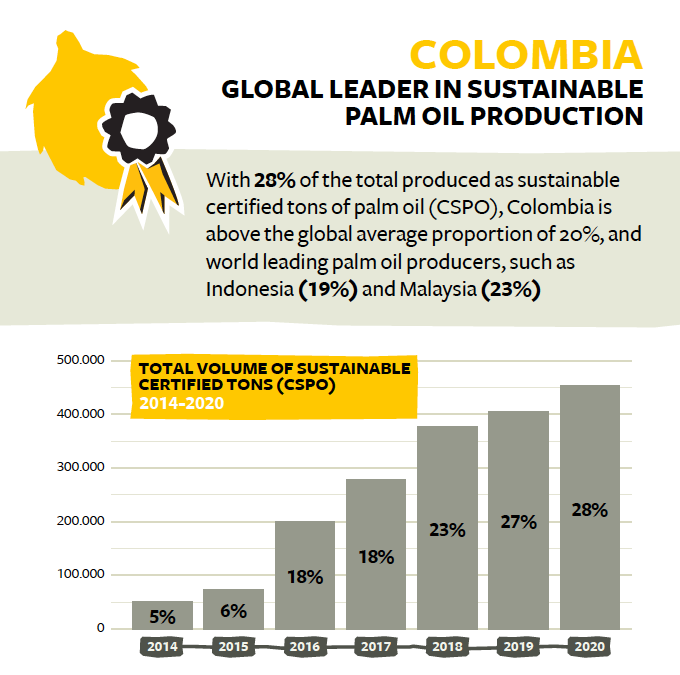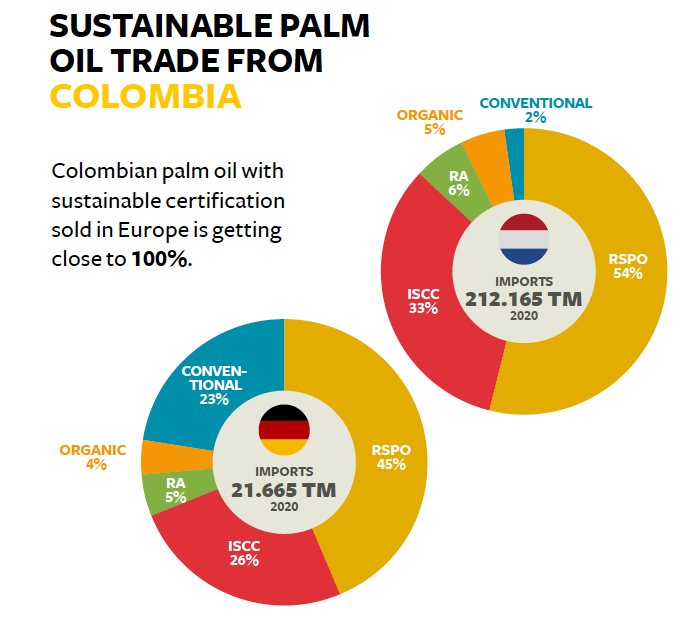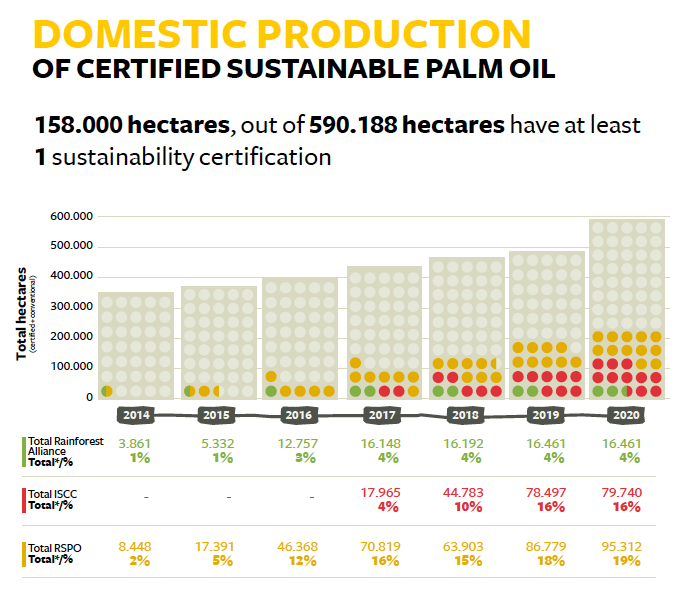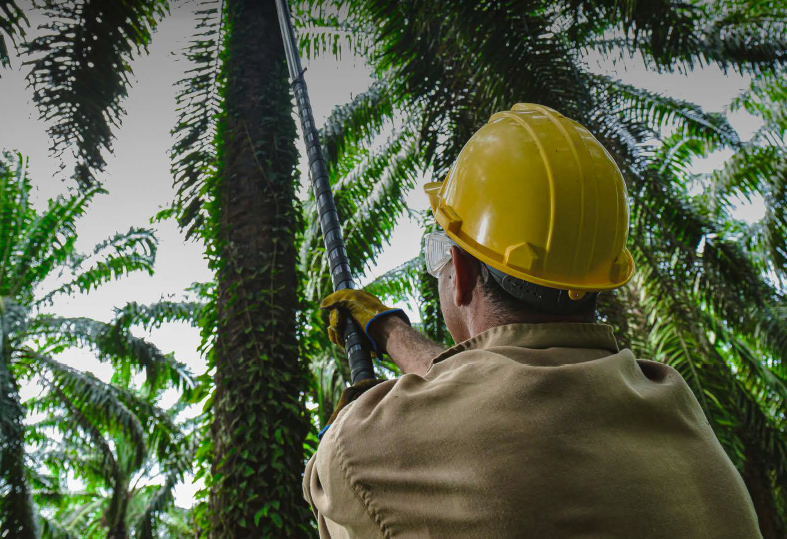The Colombia 2020 Palm Oil Barometer shows Colombia reaching 28% certified sustainable palm oil (CSPO) production in 2020, and contributing to 38% of the RSPO-certified production in the Latin American region. The main findings of the report show higher income for palm oil growers, an increase in sales in the domestic market, and an export of 98% of sustainable oil to the Netherlands (the main export destination).

Colombia continues to set an example as a leader in the production of sustainable palm oil. Despite the restrictions caused by the Covid 19 pandemic in 2020 the country increased its production of certified palm oil by 1%, reaching 28% (439,250 tons). Within Latin America, Colombia now contributes 38% of the RSPO certified production in the region.
In comparison, among the main palm oil producers in the world, it is estimated that in 2020 Indonesia produced 19% and Malaysia 23%, under voluntary sustainability standards, according to the Solidaridad Network´s annual sector report “Colombia 2020 Palm Oil Barometer”.
The report highlights the great relevance of certified sustainable palm oil (CSPO) in the international market, especially the European Union. As an example of this trend, the case of the Netherlands is presented, the main export destination of palm oil from Colombia, increasing the percentage of CSPO from 89% to 98% in the overall total. In absolute numbers, this was due to a 21% reduction of the total purchased volume, from 267,000 tons of crude palm oil in 2019, to 212,000 in 2020, in which mainly conventional palm oil phased out by traders.
Germany also saw increasing levels of CSPO, reaching 77% in 2020, compared to 51% in 2019. Similar to the case of the Netherlands, this was a consequence of the decrease in sales of 60%, from 54,000 tons in 2019, to 21,600 in 2020, largely at the expense of excluded conventional palm oil.

It is noteworthy that the volumes exported to Europe are close to 100% of the capacity produced in Colombia with sustainable certification. This underlines the urgency to add speed and scale to the efforts to adopt sustainability practices by smallholder producers, of which only 6% produces certified sustainable palm oil. On the other hand, there is much potential to further consolidate nearby markets such as the United States, which can absorb a greater supply of certified sustainable palm oil. Lastly, there is a call for more recognition by end consumers about the products that contain sustainable palm oil derivatives and to provide more visibility to the impact when it is produced with sustainable practices.
International palm oil prices in 2020 reached historical highs (910.64 USD in December 2020). This upward trend was driven by strong import demand, especially from China and India, and by reduced production in the main countries Malaysia and Indonesia. These external conditions provided better income for Colombian palm growers, and were further boosted by greater palm oil sales in the domestic market.

In 2020, the total production of crude palm oil (CPO) in Colombia reached 1,559,011 tons, a growth of 2% compared to 2019. Slightly more than half (52%) of this production was destined for the domestic market and the remaining 48% for exports, representing a sales value of about 515 million USD. Palm oil consolidates its fourth position in Colombia’s agricultural exports ranking, after coffee (2.635 million USD), flowers (1.398 million USD) and bananas (916 million USD).
Thanks to the efforts of the local industry, government and civil society, Colombia today has the conditions for consolidating itself as a source of palm oil that is sustainably produced and has the potential to comply in the short term with a zero-deforestation commitment. Pioneering initiatives such as the Zero Deforestation Agreement, signed in 2017 under the flag of the Tropical Forest Alliance (TFA), and the National Sustainable Palm Oil Program (APSCO), led by sector organization Fedepalma since 2019, now pave the way for the completion of the sustainable sector transformation in this decade.

